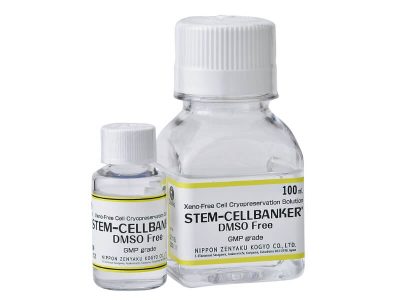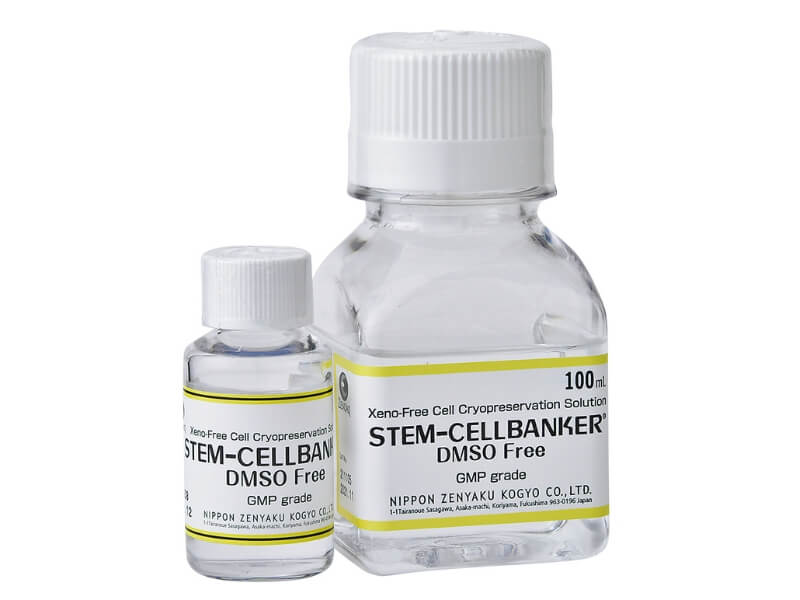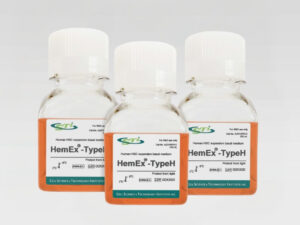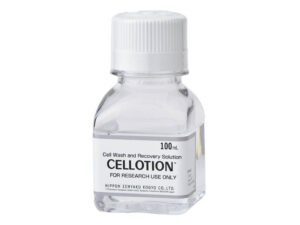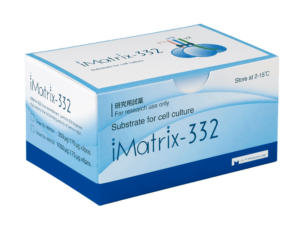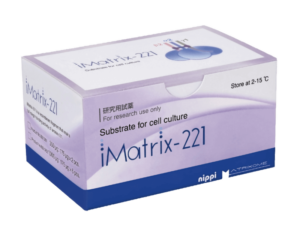STEM-CELLBANKER®
DMSO free GMP grade
Preserving cells, tissues & organoids for regenerative medicine and cell therapy research
Product Basics
STEM-CELLBANKER® DMSO Free GMP grade is a chemically defined freezing solution that doesn’t contain DMSO as an anti-freezing agent. It has been developed for customers who prefer not to use DMSO-containing cryopreservation solutions due to a variety of their intended applications. STEM-CELLBANKER® DMSO Free GMP grade is also manufactured in compliance with JPN, EU, US, and PIC/S GMP guidelines.
Key Features
- Chemically Defined. Free of serum and animal derived component
- DMSO-free
- Significantly increased cell viability while maintaining cell pluripotency, normal karyotype, and proliferation ability after freeze-thaw procedure
- Batch-to-batch stability
- Requires no further preparation; direct freezing at -80℃, with no programmable freezer needed, etc.
- High quality product carefully monitored in compliance with GMP*
- Customizable**
* This product is U.S. FDA DMF registered. Contact us to request Letter of Authorization submission.
** For more information on customization, please click here.
Technical Information
Cells Tested
When tested in the following cells with this product, 80-90% of viability of cells was observed.
Complete List of Cells Tested [PDF]
| Cell type | Description |
|---|---|
| 129SV | Mouse ES cell |
| 201B7 | Human iPS cell |
| 2D-8 | Murine hybridoma |
| Caco-2 | Human colonic adenocarcinoma cell |
| Canine PBMC | Canine peripheral blood mononuclear cells |
| Feline PBMC | Feline peripheral blood mononuclear cells |
| HeLa | Human uterine cervical carcinoma cell |
| HepG2 | Human hepatocellular carcinoma cell |
| Jurkat | Human T-cell line |
| K562 | Human Caucasian chronic myelogenous leukemia cell |
| NBM-Lu | Normal newborn murine fibroblast cell line |
| P3/x63-Ag8.U1 | Murine myeloma cell |
| SK007 | Human B-cell line |
| UE6E7-16 | Human Mesenchymal cell |
| UE7T-13 | Human Mesenchymal Stem cell |
| YAC-1 | Murine lymphoblast |
Protocol
Freezing
For optimum results, cells for cryopreservation should be in log phase of growth. Similar or other standard freezing protocols may be substituted.
- Examine and make sure the cell culture is free of contamination, in healthy and at proper confluency.
- Perform a cell count to determine the viability of cells.
- Centrifuge at 1,000 – 2,000 rpm, 4°C for 3 to 5 minutes to gently pellet the cells. Remove the supernatant with an aspirator.
- Gently suspend STEM-CELLBANKER® GMP grade cryopreservation medium (1 mL for 5×10⁵ – 5×10⁶ cells).
- Transfer 1 mL of the cell suspension to cryopreservation vial labeled with appropriate information (the cell line name, concentration, passage date etc.).
- Place the vials directly in -80℃ for storage.
- (OPTIONAL) Transfer the frozen vials to a liquid nitrogen storage tank after the vials have been frozen for at least 24 hours.
IMPORTANT: Optimum protocol may change with the cell types.
Thawing
- Remove the cryopreservation vial from the freezer and quickly thaw cells in a 37°C shaking water bath or shake by hand.
- Transfer the content to a centrifugation tube then immediately dilute and gently mix with 10mL of complete cell culture medium. Using CELLOTION® instead of complete culture medium will prevent adhesion of cells to the wall of the tube, increasing the recovery rate.
- Centrifuge cells at 1,000 – 2,000 rpm, 4°C for 3 to 5 minutes. Remove the supernatant with an aspirator.
- Gently resuspend the cells with an appropriate volume of complete cell culture medium then plate in a culture flask or plate
- Continue the culture procedures according to standard protocols.
Specification
- Manufactured By : Zenogen Pharma Co., Ltd
- Size : 20mL (SKU: 13925), 100mL (SKU: 13926) & 20mL x4 (SKU: 13925-S)
- Storage and Stability : 2 to 8℃ or below -20℃
- Expiration date : 3 years after the date of manufacture
Pricing
STEM-CELLBANKER®
DMSO free GMP grade
- Developed for stem cells
- iPS・ES cells cryopreservation
- Animal component free・Protein free
20ml size
SKU: 13925
Price: $60.00
100ml size
SKU: 13926
Price: $240.00
20ml size x 4
SKU: 13925-S
Price: $230.00
* This product is U.S. FDA DMF registered. Contact us to request Letter of Authorization submission.
References & Literature
Ueda, H. et al. Establishment of in vitro 3D spheroid cell cultivation from human gynecologic cancer tissues. STAR Protocols 2, 100354 (2021) doi: 10.1016/j.xpro.2021.100354.
Sako, K. et al. Optimization of Spheroid Colony Culture and Cryopreservation of Nucleus Pulposus Cells for the Development of Intervertebral Disc Regenerative Therapeutics. Applied Sciences 11, (2021) doi: 10.3390/app11083309.
Yagishita, S. et al. Characterization of the large-scale Japanese patient-derived xenograft (J-PDX) library. Cancer Science 112, 2454–2466 (2021) doi: 10.1111/cas.14899.
Mikłosz, A. et al. Does TBC1D4 (AS160) or TBC1D1 Deficiency Affect the Expression of Fatty Acid Handling Proteins in the Adipocytes Differentiated from Human Adipose-Derived Mesenchymal Stem Cells (ADMSCs) Obtained from Subcutaneous and Visceral Fat Depots? Cells 10, (2021) doi: 10.3390/cells10061515.
Ueno, K. et al. Freezing of cell sheets using a 3D freezer produces high cell viability after thawing. Biochemistry and Biophysics Reports 28, 101169 (2021) doi: 10.1016/j.bbrep.2021.101169.
FOR RESEARCH USE ONLY, NOT FOR USE IN DIAGNOSTIC PROCEDURES
